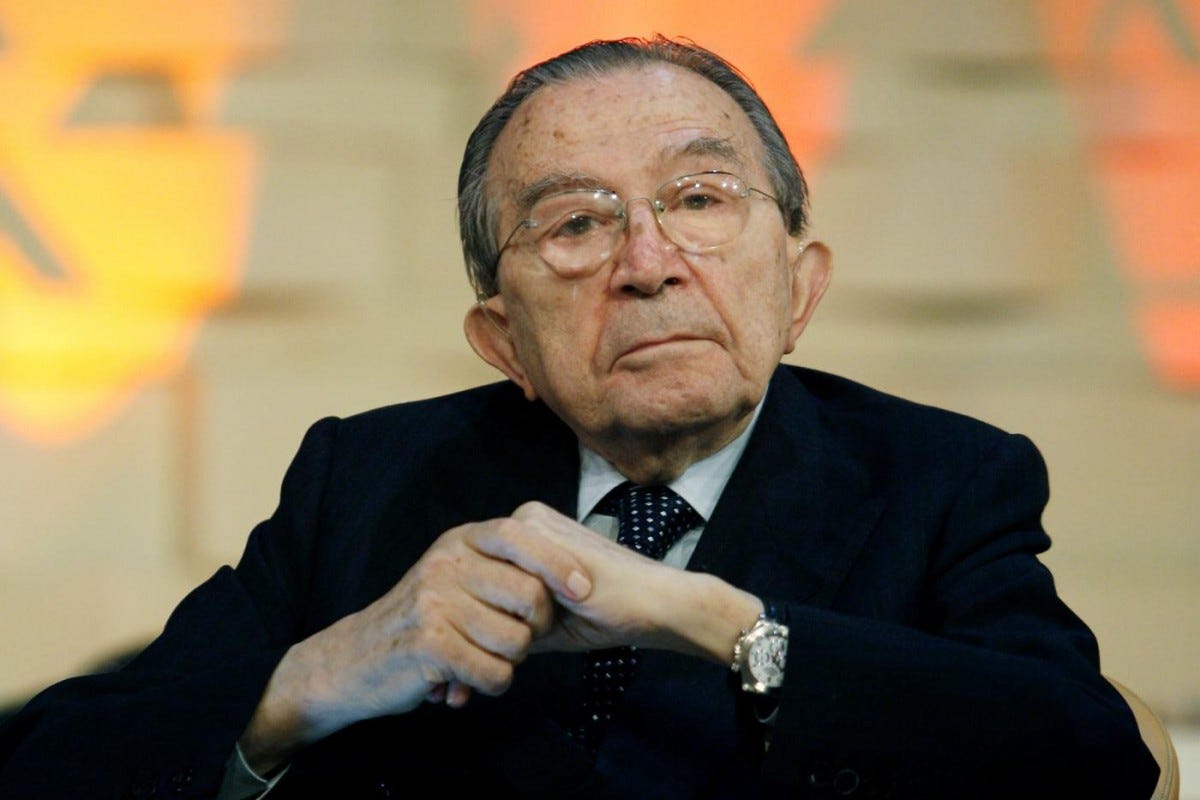All historians of the Mafia agree on one thing: the Mafia would never have achieved its immense power in Sicily if it had not been for the sponsorship of politicians. It is the alliance with political power that gives the Mafia its competitive edge. If the idea of elected representatives teaming up with murders and thieves is intriguing, it gets better. It is widely believed that the Mafia owed its power to Giulio Andreotti (1919-2013), the leading statesman on the post war years; and that Giulio Andreotti owed his political longevity to the Mafia.
The theory goes that the politicians gave the Mafia carte blanche, and the Mafia in their turn guaranteed the votes of Sicily for the politicians of the Christian Democrat party of Andreotti. This purports to explain why the state was so weak and dilatory in dealing with organised crime, and why Sicily, historically, was solid Christian Democrat territory, ensuring Christian Democrat-dominated governments in Rome. Despite the secret ballot, it is claimed, people in Sicily voted the way they were told, implicitly or explicit, to vote. Voters were supposed to put a recognisable mark on their ballot and collect a financial reward for doing so after the election was over.
The story of the Mafia and the politicians is dealt with in the book Mafia Republic by John Dickie, which is very thorough and rather frustrating, like all books about Italian politics. The story gets lost in the detail, which is labyrinthine and hard to grasp. And not much of the action is character driven. While it is true that Andreotti was the subject of several interminable trials, these never produced a definitive sentence and he was never punished for association with the Mafia; nor was it ever clear that Andreotti was the sort of character who craved that sort of power. But the very fact that Italy’s leading politician could even be accused of Mafia involvement was sensational. A lot of the speculation focussed on the alleged meeting between Andreotti and the boss of bosses, Totò Riina, where Andreotti kissed Riina, the sign of his subservience to the cosche. The evidence for this came from a pentito, a Mafia turncoat, but the idea of Andreotti kissing anyone is hard to believe.
I knew Andreotti in my later residence in Rome. Well, that is not accurate; I shook his hand; I celebrated Mass when he was in the congregation. He was self-effacing to the point of invisibility even in a tiny early morning weekday congregation; the first time you would notice him was when he stood before you to receive Holy Communion. He would go to a different church every day (easy to do in Rome) to avoid attention. I didn’t know Andreotti, but neither did anyone else. Another famous politician told me two things about him: he had known him for forty years, and yet he still felt he did not know him; and that he was physically undemonstrative, which was unusual for an Italian. (That makes the kiss story suspect to my mind.) Mrs Thatcher, he added, loathed him. I think this last is in the public domain already.
Andreotti’s life revolved around the Church, around his family, around academic pursuits, and around political dealmaking at which he excelled. The leader of the right wing of the Christian Democrats, he was Prime Minister seven times. He sat in every Parliament from 1946 until his death in 2013, latterly as a senator for life. He was unprepossessing, suffering from a spinal deformity and wore huge unfashionable glasses. He was known as Il Gobbo (the hunchback), Il Divo Giulio (the Divine Julius) and Beelzebub, all depending on your point of view. He was intimate, in so far as anyone could be, with six popes. He had a very dry sense of humour. ‘Power exhausts those who do not have it,’ he observed (il potere affame chi no lo ha.) Was this man the lynchpin of the Mafia, their point man in Rome? Was he pulling the strings? Was he at the centre of the spider’s web? Historically it is unlikely, but from a fictional point of view the idea that someone like Andreotti was playing the system at whose centre he sat is irresistible.
Two things persist in the memory.
When I first went to live in Italy Andreotti was Prime Minister. He resigned on 28th June 1992. He was succeeded by Giuliano Amato, who was a socialist. This marked the end of the Christian Democrat hegemony, did we but realise it at the time. On 15th January 1993, Totò Riina, boss of bosses and the supposed partner in that kiss, was arrested after 23 years on the run. The Amato government achieved little, but the Riina arrest was certainly something. Was the change in Prime Ministers coincidental? A year later the once mighty Christian Democrat party, weakened by scandal after scandal, dissolved itself, on 15th January 1994.
At a function where Andreotti was present, I got talking to his bodyguard, hoping to find out something about the enigmatic Divo Giulio. ‘I suppose you spend a lot of time in church, don’t you?’ I hazarded. ‘Yeah,’ he answered, without even the hint of a smile.







